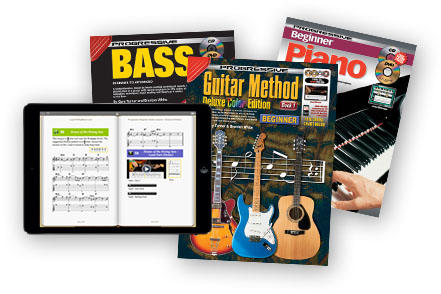It isn’t all about practice…
If you ask most people how to succeed at learning an instrument, people will generally tell you that the key is ‘practice practice practice.’ While we do agree that practice is the key to becoming good at a musical instrument, this is very different from succeeding at learning an instrument. When ‘succeeding’ at learning an instrument, the most important task is to go from not knowing how to play at all to being able to play at a level where you feel like you have achieved the goal you have set for yourself. Everyone is different, and everyone will have a different goal. Some people will be happy enough if they can play a few simple songs while others want to play at the level of the greatest musicians.
We can say from personal experience that there can be difficulty in learning when first starting out. Learning something new can be very overwhelming, and frustrating when it feels like little progress has been made. Over time however, a number of simple techniques and attitudes can help you break through such barriers in order to teach yourself to play any instrument! Today, we’re going to share these with you with the hopes that they will help you to succeed at learning that instrument you have been eyeing for years, but never felt you would be able to learn.
So if you’re ready, here are a few helpful hints.
Finding the right teacher
This is the simplest piece of advice that most people never follow. Whenever starting something new, something that you have never done before, the biggest danger is confusion and becoming overwhelmed. When you don’t know how to do something, you will assume that you need to learn EVERYTHING about the subject, and this mindset is just plain wrong. A good teacher will put your mind to rest and point you in the right direction from the start to ensure you are learning only what is essential to what you need to know in order to achieve your goals.
Now, the reason we say find a ‘good‘ teacher is because a good teacher will be able to understand your needs and design a learning approach that fits your personality and habits. Some teachers will implement what we call the ‘do or die’ approach to learning, whereby they will give you homework, expect you to do it without complaining and then come back to class having completed all the exercises and drills. This might be possible in an ideal world, however this almost never happens with students who have competing interests and demands on their time, or who don’t have that rare singular aspiration to master their instrument of choice.
You’ll want to find a good teacher who can assess your needs properly and design a lesson plan that keeps you interested and motivated at every step. That said, what if you can’t find a good teacher? Or for some reason or another you’re too shy to go out and find one? If this is you, try giving this next tip a go.
Learn with a group of friends
Learning with a group of friends is another great tip for success at learning any instrument. Even if you all play the same instrument, playing in a band with friends or family is not only fun, it is also a great way to learn much more than in a one-on-one session with a teacher. Playing in a group environment is a chance to utilize everything you’ve learned from teachers and practice them in the real-time situation of playing in unison with others. Not only do you need to be listening for what you’re playing, you need to listen to everyone else’s playing and work together as a unit. As a result, playing in a group greatly improves your sense of rhythm and timing, and critical listening skills.
Another benefit of learning an instrument in a group is the ability to bounce exercises, ideas and techniques off one another. Another example is if you or friends are stuck learning a tricky chord or note sequence, it won’t seem as difficult to learn or troubleshoot with each other’s support and differing perspectives. With some practice, your ability to pick up new skills will improve. It is also both challenging and motivating to learn with friends, but keep it in mind: It is not a race. Everyone learns differently and at varying paces, so be patient!
Some Final Thoughts…
In summary, it is important to set goals for what you wish to achieve when learning an instrument. This will present a clearer picture when you start and can help you make decisions in the future. Finding the right teacher, someone who can create a personal practice program to suit your personality, ability and habits is important in your musical development and motivation. Learning with a group of people also has the benefit of teaching you practical skills, and has the added bonus of support from like-minded people. Both aspects of learning an instrument have their advantages and disadvantages, and you may find one works better than the other for you. You might find it best to have a balance of both worlds.
With some practice and persistence, you can indeed succeed at learning any instrument you set your mind to. Most importantly, keep playing and practicing, and have fun!
– Continue learning with Learn To Play Music at LearnToPlayMusic.com































Learning any of the music instrument requires patience and practice. For getting success in learning, one should have to set some goals and develop the key skills. The article you have shared in very informative and will definitely help the music lovers to get success. Thank you for sharing!!